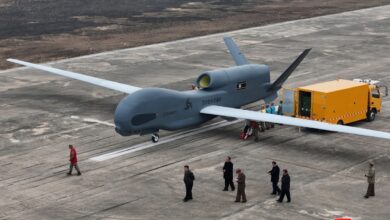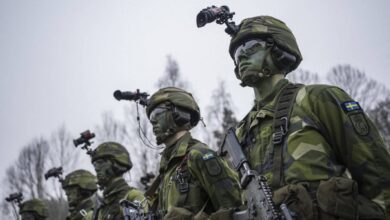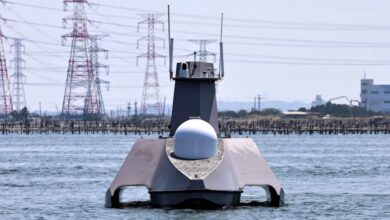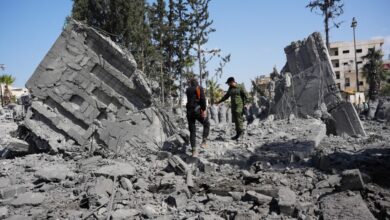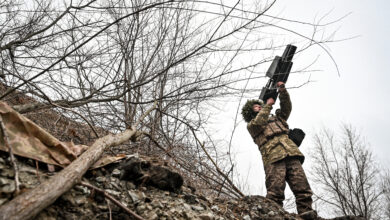
Throughout his 20-plus year rule, Vladimir Putin has consolidated power through graft, intimidation, manipulation of the Russian legal system, and forcefully silencing critics.
Putin’s ability to sustain subservience and loyalty to his authority is no small feat, especially in a political culture of ruthless power politics.
His reputation as a master tactician abroad has also been carefully cultivated, if not exaggerated.
Putin’s Foreign Policy
Putin’s geopolitical resume contains a number of marginal successes, including the 2008 invasion and de facto annexation of portions of Georgia, propping up fellow strongman Bashar Al-Assad in the Syrian Civil War in 2015, and annexing Crimea and occupying the Donbas in eastern Ukraine in the aftermath of the 2014 Maidan Revolution.
But upon closer inspection, these foreign military operations yielded more long-term pain than short-term gain. Since being invaded, Georgia aspires to join the European Union and NATO, and the Al-Assad regime remains on Russian life support in the midst of Syria’s ongoing war.
The Maidan Revolution was uniquely important not only because it represented Ukrainian rejection of Russian neo-colonialism, but it also signified a strategic defeat of Russian soft power by Western values. Ukrainians chose democracy, rule of law, and free markets over political coercion and corruption.
In the next eight years, Ukraine slowly decoupled from its traditional Russian/Soviet orbit and gravitated politically, economically, and militarily toward the West.
Lack of Foresight
By 2022, Putin could no longer stomach his failure to reign in what he viewed as a wayward vassal state. Depleted of soft power resources, Putin’s military invaded Ukraine on February 24 under the faulty pretext that Kyiv was a “gang of drug addicts and neo-Nazis,” among other outlandish claims.
In the four and a half months of largely stalemated war against a vastly inferior military, Putin’s invasion has created tens of thousands of casualties of war, hundreds of rape and torture victims, displaced and traumatized families, and exponential growth of anti-Russian sentiment.

Politically, Putin’s invasion has reaped unprecedented economic sanctions against the Russian Federation and laid bare the numerous vulnerabilities of a highly overrated Russian military while shattering the myth of its invincibility.
His grueling war of attrition underlies a complete lack of strategic foresight and is likely to achieve precisely what Putin sought to prevent.
Historically neutral states Sweden and Finland applied for NATO membership in May and are expected to be approved by all member countries. Upon approval of Finland’s membership, Russian-NATO borders will have doubled, to 1,584 miles.
In a war that has no clear military objectives, Putin cannot afford protracted hostilities. Unfortunately for him, this prospect is gaining traction as frontlines become increasingly static.
Although numbers are likely higher due to the fog of war, respected open-source war tracker Oryx has visually confirmed the loss of 4,574 Russian military vehicles, aircraft, and equipment since the war began (as of July 4).
https://twitter.com/oryxspioenkop/status/1545485348020649984
Most official projections put Russian soldiers killed in action somewhere between 25,000 and 35,000, in less than five months of fighting. Given these considerations, the Russian war effort is becoming increasingly unsustainable in the mid- to long-term.
Desperation
Since the invasion, Putin’s reputation as a master tactician has all but fizzled. In this time, the Russian military has been exposed for the overstretched, ill-equipped, and incompetent Soviet throwback it is.
Ukrainian forces have time and again proven their tactical superiority, having ambushed and decimated more heavily armed Russian units in Bucha, Kyiv, Hostomel, Kharkiv, Irpin, Sumy, and Trostyanets.
Putin’s recent gains in the Donbas have been marginal at best. Military objectives he failed to achieve through basic battlefield competence have been secured with brute force and scorched earth tactics.
These actions are not indicative of strategic military planning, but rather desperation.
Not only has Putin exposed the Russian military’s tactical and operational shortcomings, his ill-advised invasion has united the West against Russia at unprecedented levels.

Western arms supplies to the Ukrainian army have totaled in the tens of billions of dollars with no sign of letting up.
The West is also working to wean itself from dependence on Russian fossil fuels. In the long run, such a move will likely have serious consequences for Russia’s undiversified economy, which relies heavily on Western purchases of its oil and natural gas.
Thus far, Putin has only achieved pyrrhic victories in Ukraine. As Russian resources dwindle and the economy constricts, Mr. Putin will eventually need more than leveled cities to invigorate domestic support for the war, not only for the general populace but also for the ruling elite.
Tucked safely away in the Kremlin, Putin has fostered a climate of ruthless realpolitik where failure is not tolerated. If the war in Ukraine continues on its current trajectory, Vladimir Putin may fall victim to the very culture he created.
 Andrew Leonard is a freelance writer covering foreign policy and international politics. He previously worked as a sportswriter and also served as a special interests columnist while in college.
Andrew Leonard is a freelance writer covering foreign policy and international politics. He previously worked as a sportswriter and also served as a special interests columnist while in college.
Disclaimer: The views and opinions expressed here are those of the author and do not necessarily reflect the editorial position of The Defense Post.
The Defense Post aims to publish a wide range of high-quality opinion and analysis from a diverse array of people – do you want to send us yours? Click here to submit an op-ed.


